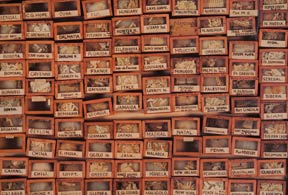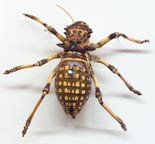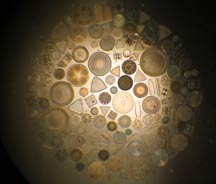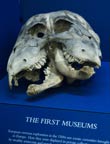
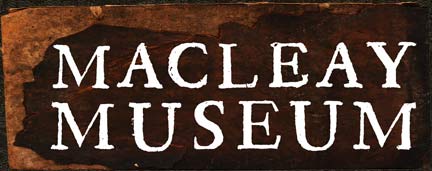 |
||
My interest
in the Macleay collection began on my first visit to Australia
in 1993, six years before moving
to Sydney from
the US. I was delighted, therefore, to be invited with three
other contemporary jewellers here in Sydney to create a body
of work influenced by the museum. My work has long reflected
the visual
language of natural history museum
display,
having
been
greatly
impressed
as a
child by the collection of the Peabody Museum
at Yale University
in New Haven, CT. It was in this context that I created the
work
for the Sighting the Past exhibition.
The pieces
were made
with direct correlation to, among other things, the Macleay's
specimen
display jars, microscope slides, historic scientific apparatus
and insect cases. Included in several pieces were actual specimens
of Extatosoma
tiaratum,
or the Macleay's
Spectre stick insect,
an indiginous insect which I have been breeding in captivity
at home for over three years. As
the museum's founder, Alexander Macleay, identified this species
of insect himself, it seemed another sign of the personal relevance
of
this project.
“The physical act of making is the most
important part of the process for me. I try to keep from having
a view of the finished product, which leaves open the chance
that it will lead way beyond where an original vision might
have brought me. Often I’ll begin by choosing an object
that really thrills me. It may not end up as the centrepiece
of what I make but it is something that inspires me to launch;
then I’ll start to marry it with other materials and
just go from there. The piece builds intuitively, until it
feels complete. The trick is getting so many different elements
to look like they were meant to be together. That integration
is the key to my work.
Artists: Diane
Appleby • Keith Lo Bue • Susanna
Strati • Alice
Whish Visit the Macleay Museum's website: |
||



